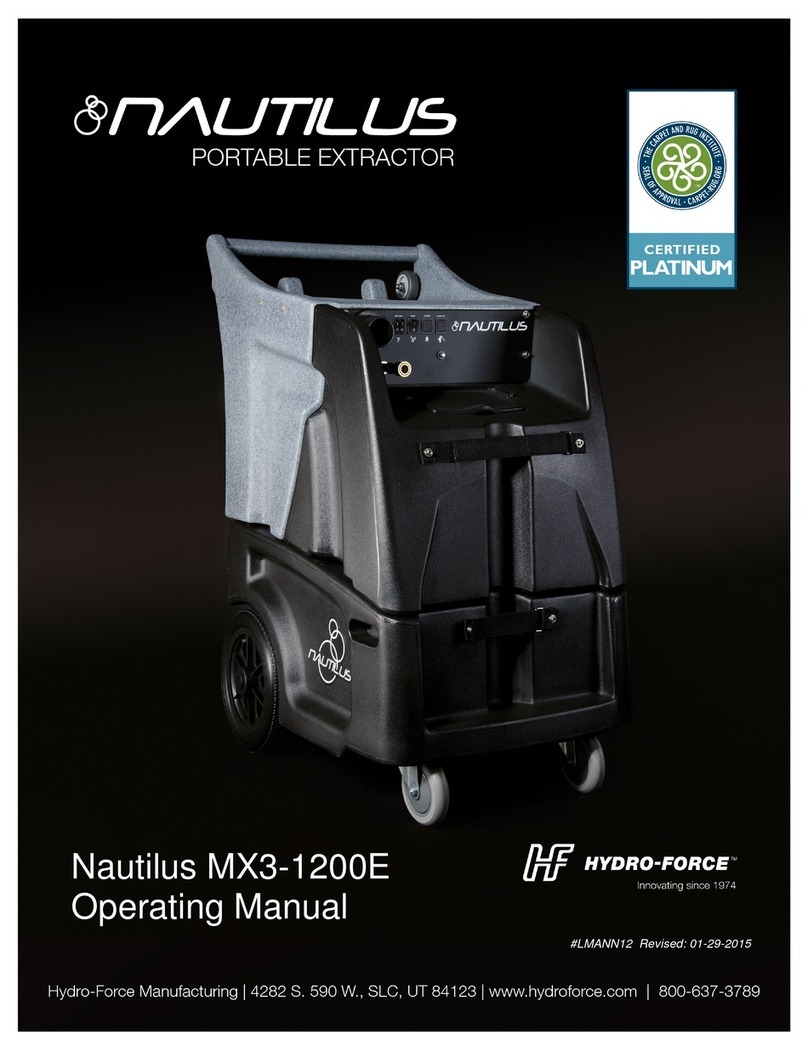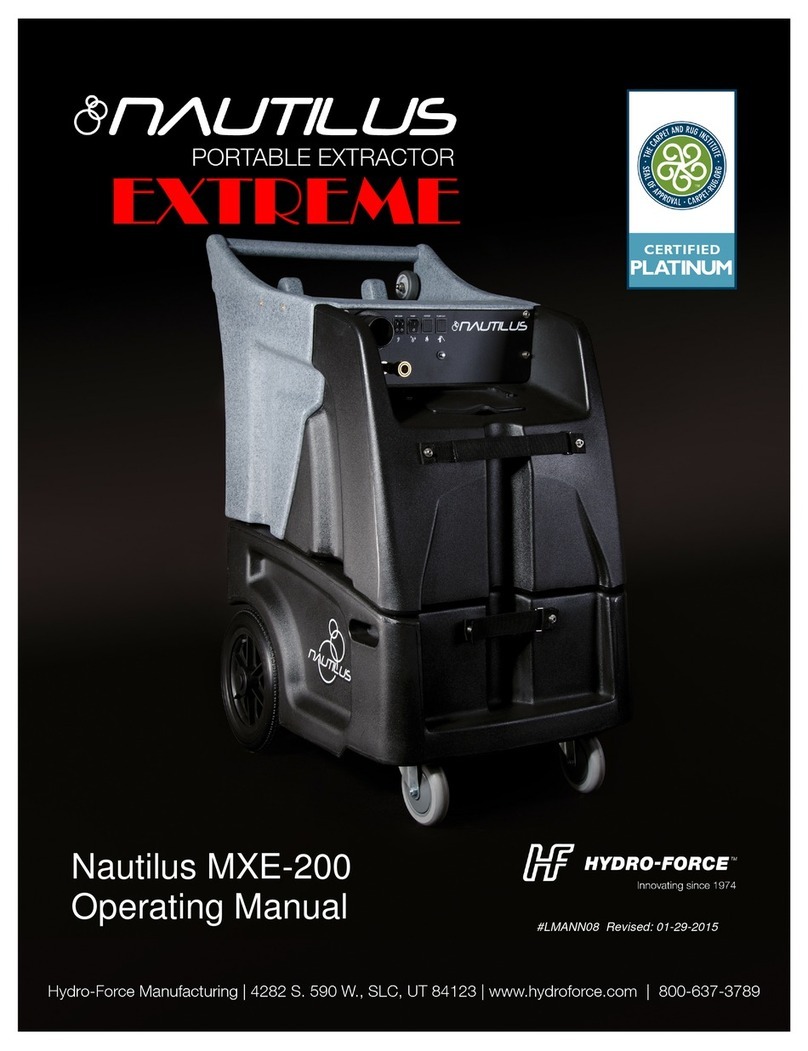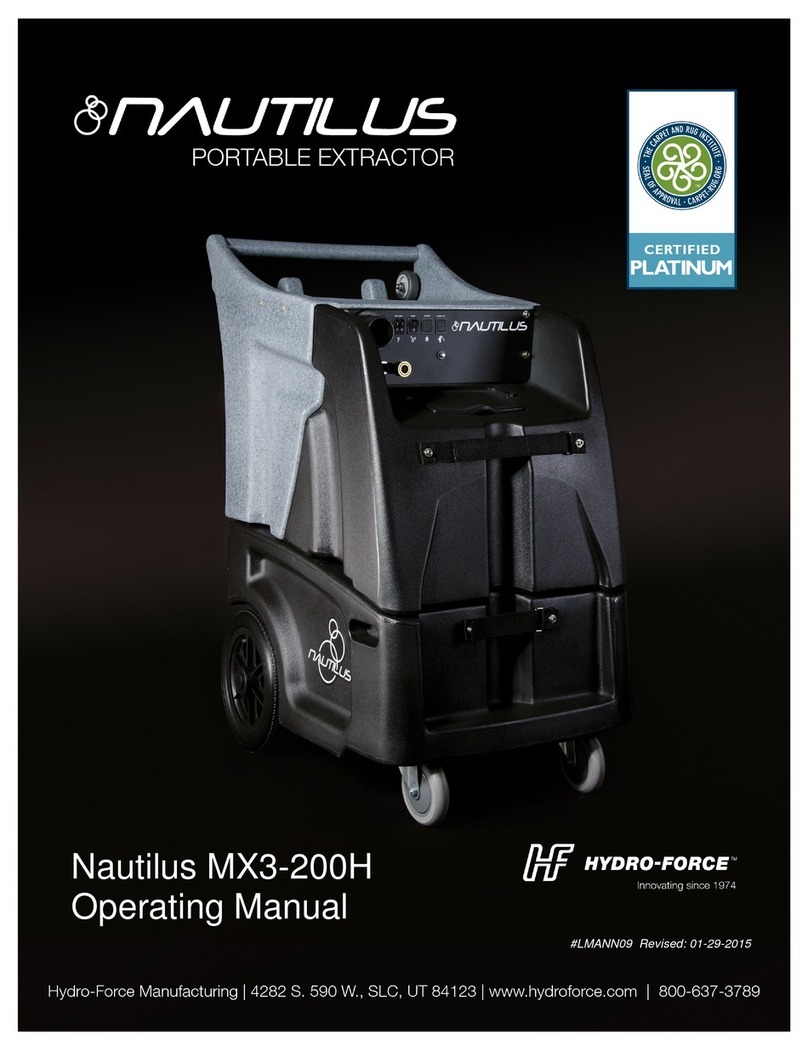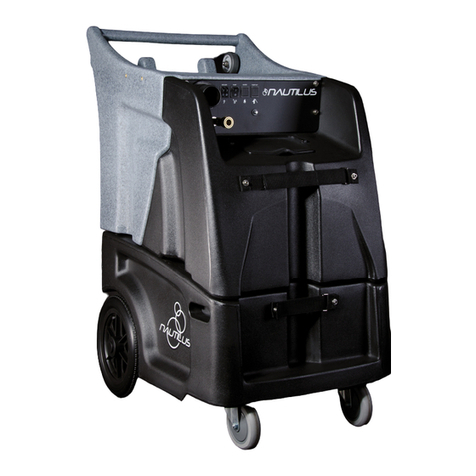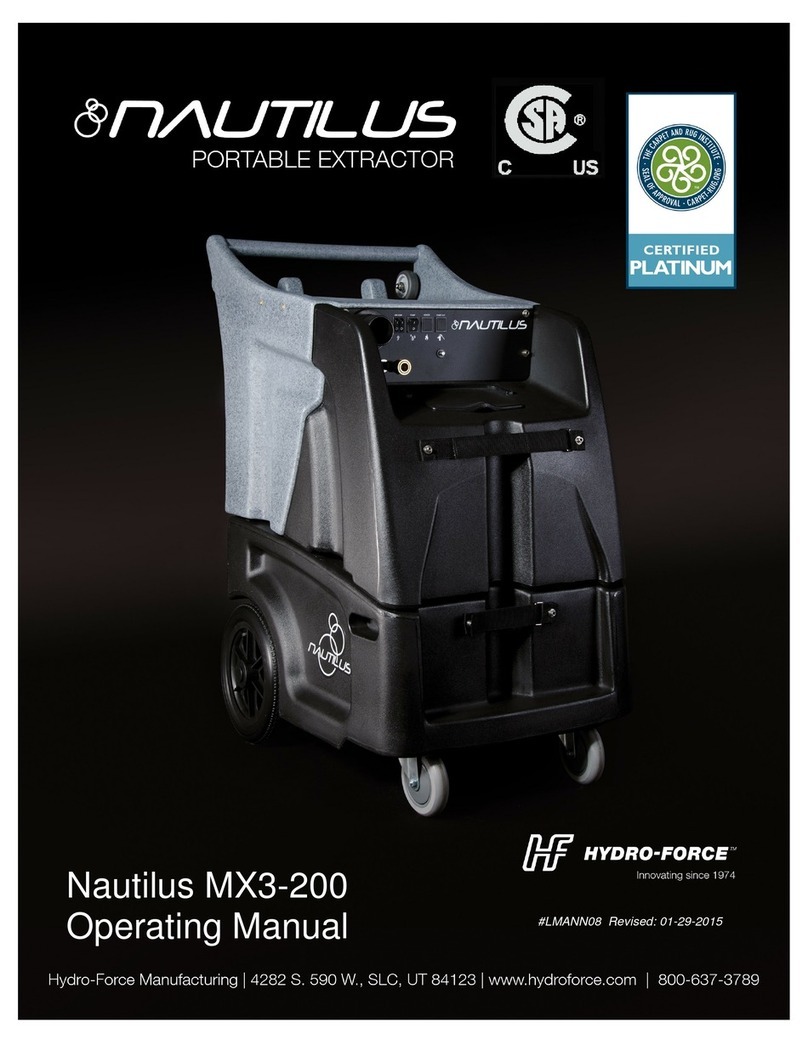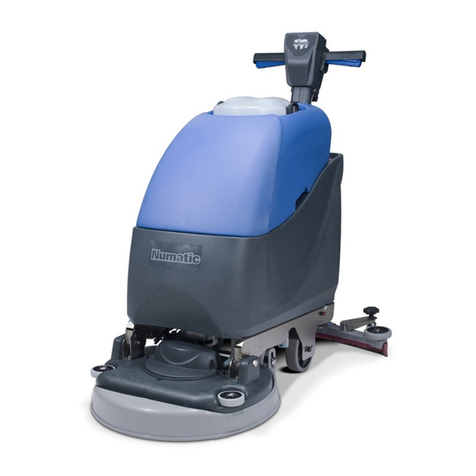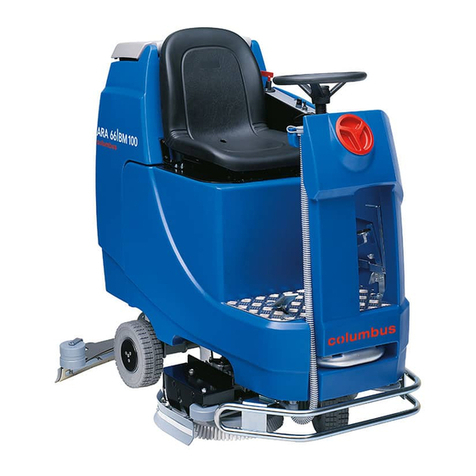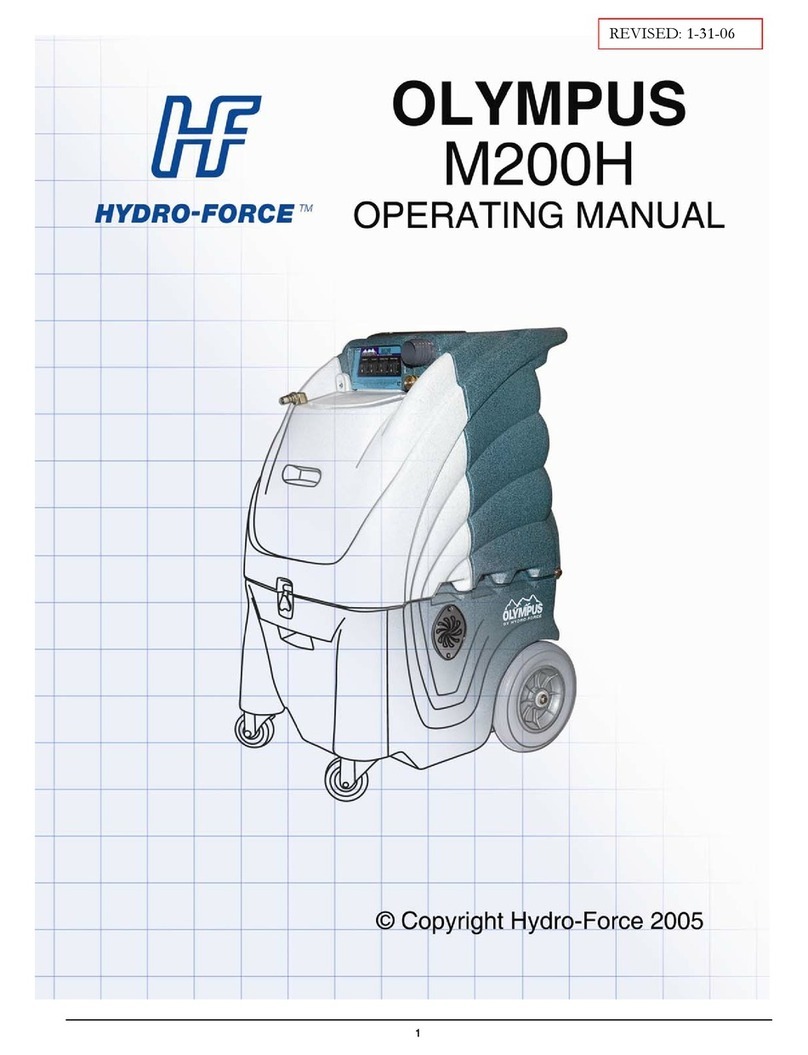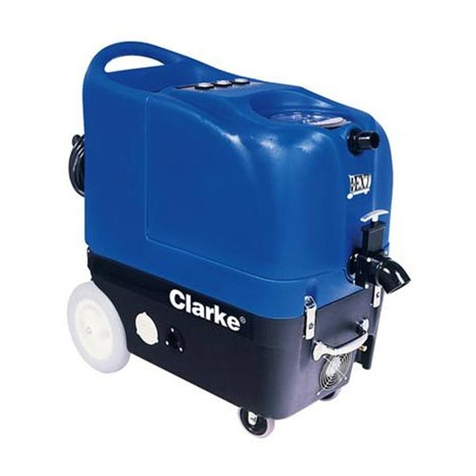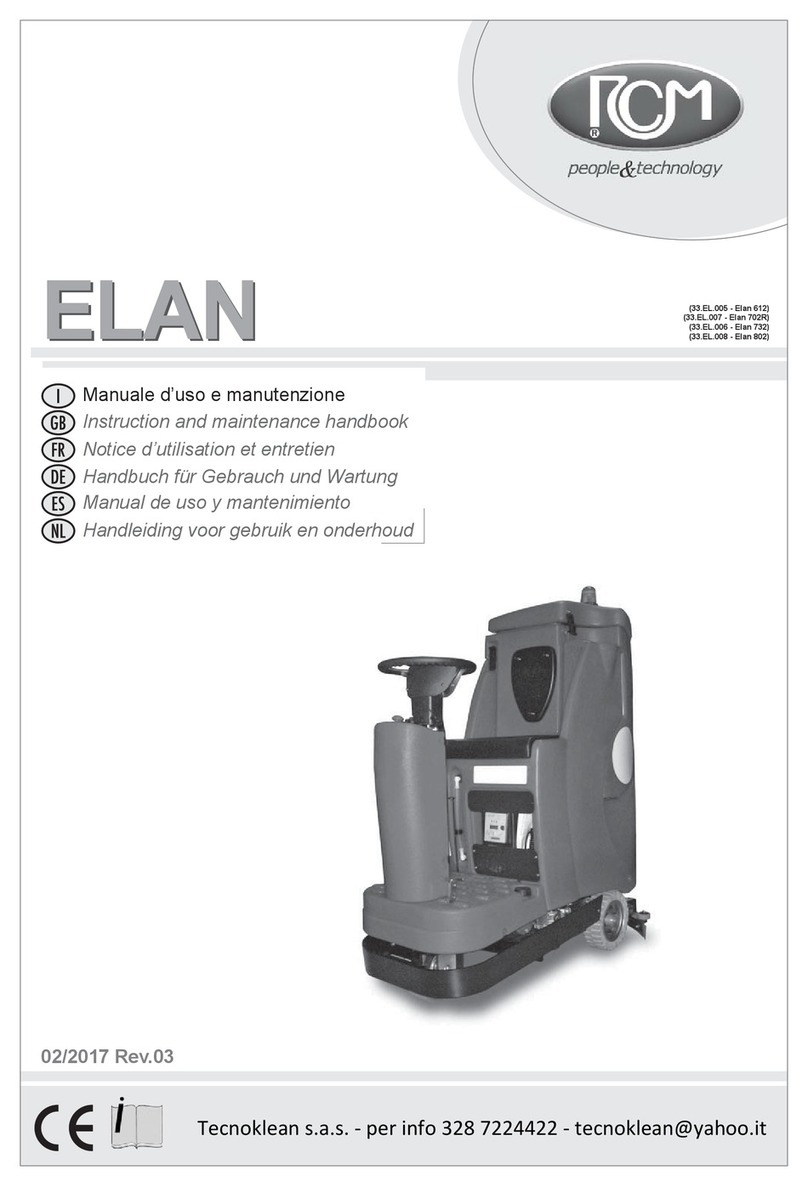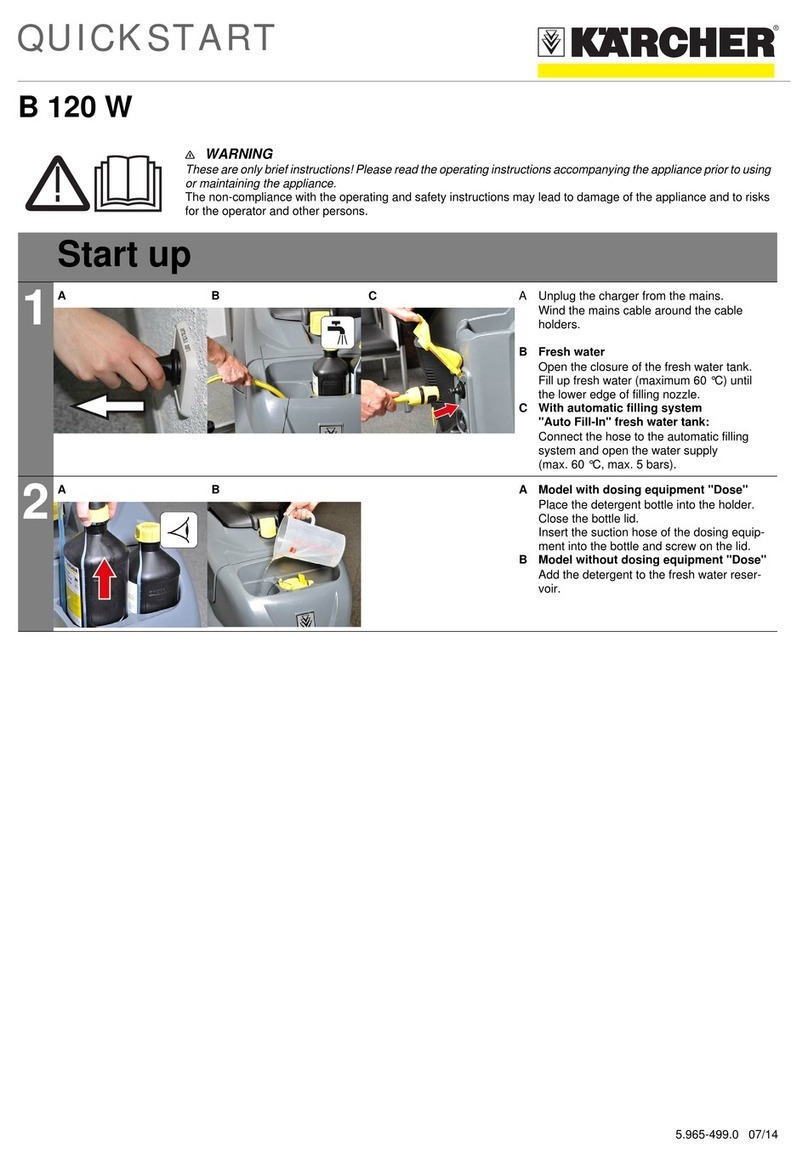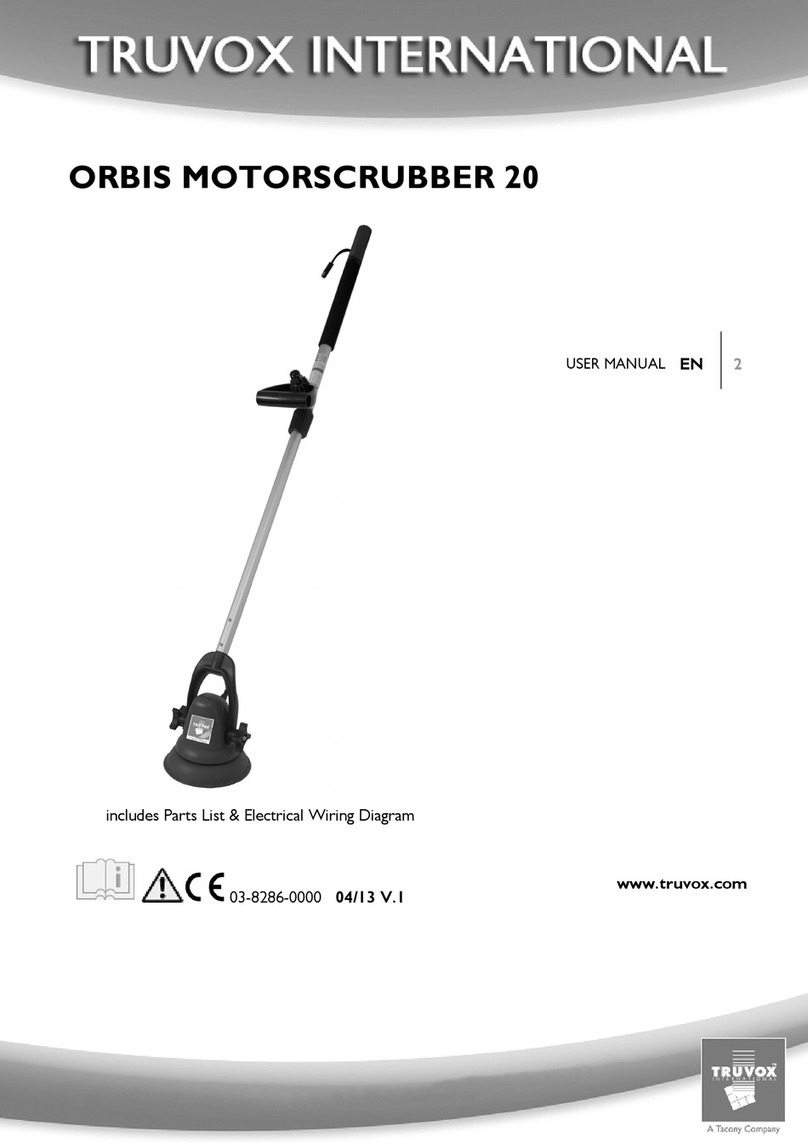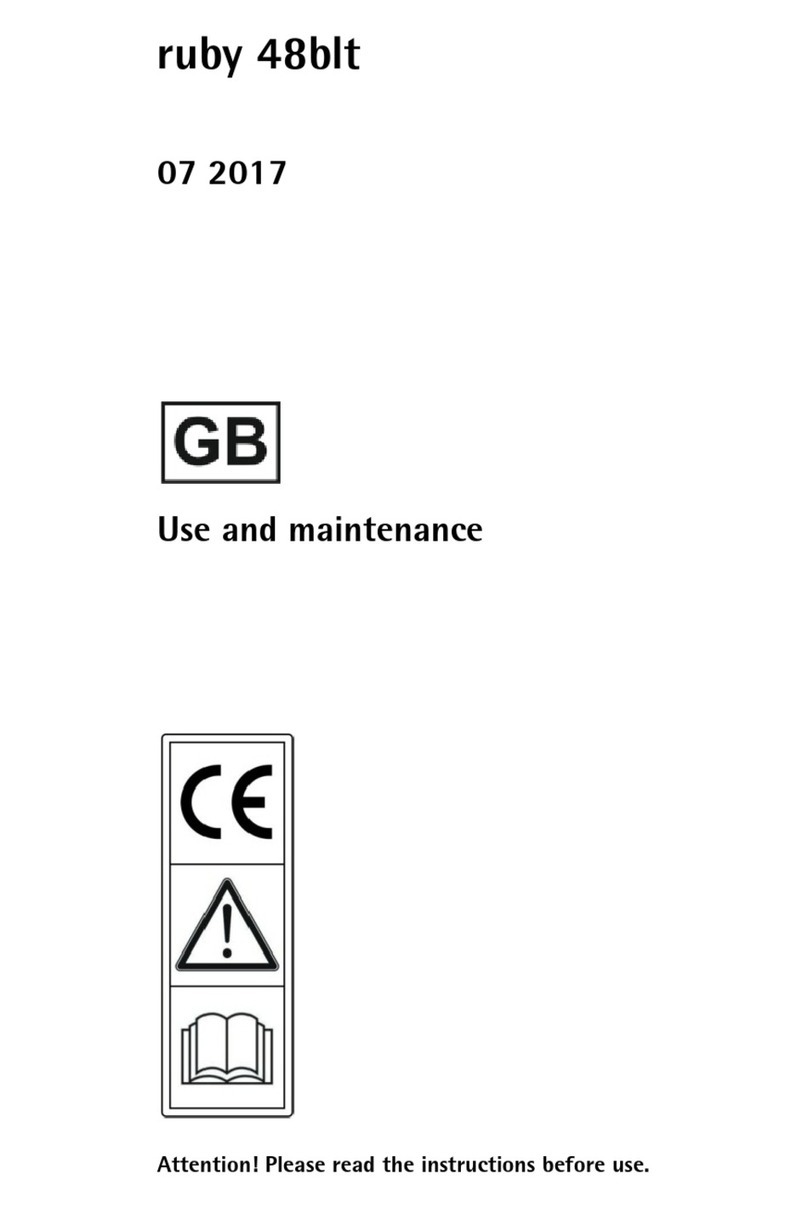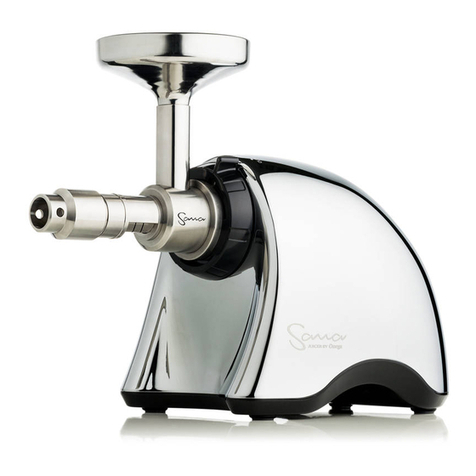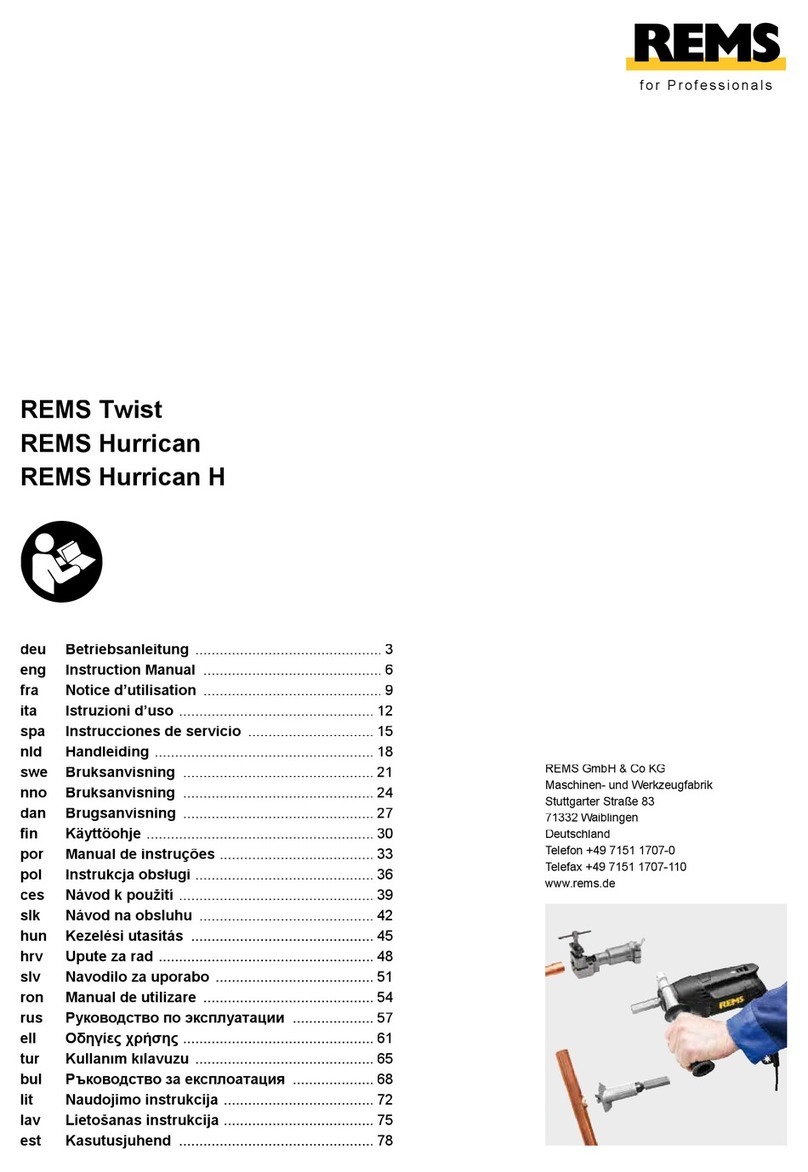
WARNIN ! This machine must be protected from conditions which may
damage the pump, tank, hoses and other components.
•Freezing of water in this machine will cause serious damage. he MX3-500RP, solution hoses, and tools
must be protected from freezing temperature. Store, transport, and use this equipment only in temperatures
well above freezing. (32ºF or 0ºC). If you suspect the MX3-500RP has been frozen, do not plug in or turn on
machine until you are sure it has thawed completely.
•If the equipment cannot be stored or transported in a warm environment, it can be guarded from freezing by
running an anti-freeze solution through the incoming water lines, chemical feed system, solution pump, solution
lines, tools and pump-out pump. he machine is filled at the factory with anti-freeze to eliminate damage during
shipment in cold weather.
ohe anti-freeze solution must be completely flushed from the machine before it is returned to service.
•he MX3-500RP must not be used to pick up flammable or combustible materials or used in areas where these
materials may be present.
•Solvent-based or water-based solutions containing solvents may damage the pump, hoses, and other
components. Do not assume chemical compatibility. Contact your distributor or Hydro-Force if you have
questions regarding the compatibility of your chemicals with the machine.
•Do not clean with solutions that are at temperatures above 130ºF.
•Rinse the solution tank, chemical system, and pump with fresh water after each day’s use.
•Do not allow pump to run dry. Always maintain adequate solution level to supply solution pump.
•HP hoses may rupture if worn or damaged. Do not use HP solution hoses if hose covering is cut, bulging, or
otherwise damaged. Examine HP solution hoses daily and replace or repair hoses as needed.
•Use a Hydro-Filter II and clean the recovery tank daily to keep pump-out filter and pump from becoming
clogged. Store the MX3-500RP with the recovery tank lid open.
•Keep Vacuum Inlet Filter clean and check float for proper operation. Do not operate the MX3-500RP without
the Vacuum Inlet Filter in place. Use defoamer to eliminate foam build-up during cleaning and prevent
foam/moisture from entering vacuums.
***Use common sense to protect yourself and others while using this equipment.***
•Keep pets and children away from the machine when in use.
•Keep all body parts, hair, and loose clothing away from openings and moving parts. Always wear appropriate
clothing and safety equipment when operating unit.
•Use extra care when cleaning on stairs. Wet carpet on stairs can be slippery.
•Do not move the MX3-500RP up or down stairs when tanks are full of water. Drain solution and recovery
tanks, and secure base latches before moving unit up or down stairs. Lift using only the appropriate handles.
•Water may be spilled, drip, or be exhausted from vacuums during operation. Place unit in area where water will
not cause damage or use drop cloth to protect surfaces.
